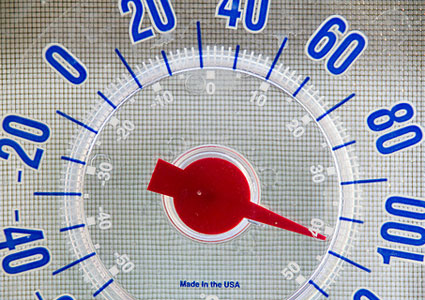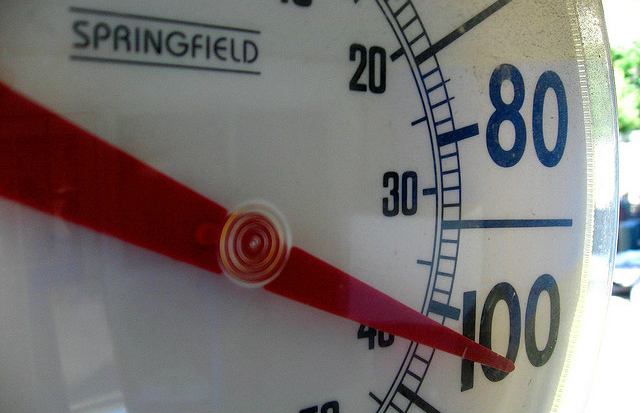
<a href="http://www.flickr.com/photos/reneeanddolan/3896757424/sizes/l/in/photostream/">dolanh</a>/Flickr
Wondering whether the heat wave that’s been shattering temperature records across the Midwest has anything to do with climate change? A report on extreme weather events released today by the UN’s Intergovernmental Panel on Climate Change (IPCC) offers strong evidence that global warming makes heat waves and record highs more likely. While there have been many studies on the link between climate and extreme weather, and plenty of speculation, this report, which synthesizes over a thousand studies on climate, weather, and disasters, offers an “unprecedented level of detail” on observed and expected changes in weather and climate extremes, says the IPCC. This is the first time the panel has taken a comprehensive look specifically at extreme weather, as well as the first IPCC report to consult social scientists in seeking to understand how communities are affected by climate change.
The IPCC warns that extreme temperatures and heavy precipitation have been on the rise since 1950, and that those trends are likely to continue throughout the 21st century. The heat impacts are particularly worrisome: The report says it’s “virtually certain” that we’ll see more daily temperature extremes at the high end of the scale going forward, and “very likely”—scientific lingo for 90-100 percent certain—that heat waves will increase in length, frequency, and intensity. Droughts are also likely to intensify in many areas, including central North America, central and southern Europe, and northeast Brazil. So while we’ll probably never know whether this particular heat wave can be chalked up to climate change, we can be pretty sure that we’ll be seeing more like it in the future. And there’s a lot more to worry about (and some suggestions for how we can cope, like improving land-use planning and enforcing building codes) in the full 592 pages of the report, which you can read here.










